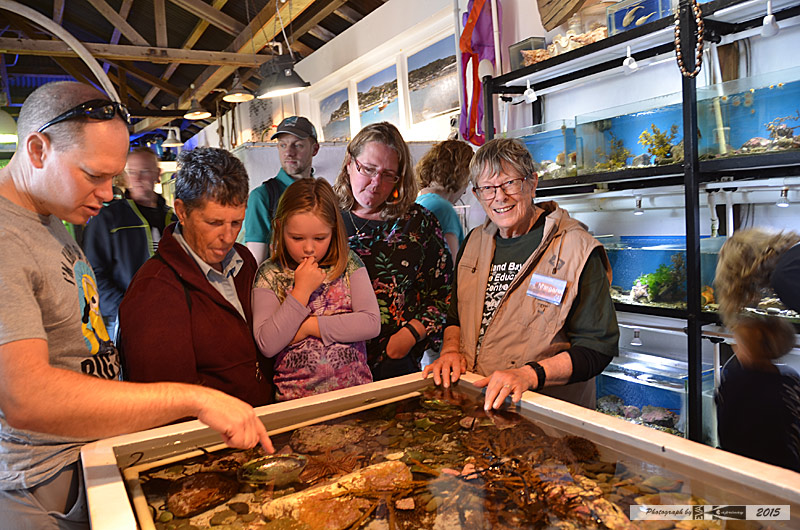
Island Bay Marine Education Centre, caring for our marine life
The Island Bay Marine Education Centre is home to many marine animals and plants fournd in Cook Strait and especially along the Wellington South Coast. We’ve been caring for some marine life in our displays for over twenty years and some have reproduced many times. Others are recent arrivals brought to us by local fishers and divers who’d rather see the animals alive at the Bait House than on their dinner plate! Some animals are only short term "visitors" to the Centre while some have been bred in a hatchery and have never been in the ocean.
Some of the marine life at the Centre has been brought to us injured and we care for them until they are healthy and can be returned to the sea. Some stay with us if their injuries won’t allow them to care for themselves in the wild. The animals living in our "Touch Gently Pool" are found on the rocky shore just outside the Bait House door. They've developed ways of coping with storm conditions, which at times can be some of the worst in the world. They're animals that we know can be touched gently without being damaged.
The health and well being of all of our marine life is extremely important to us and each animal is considered a special "guest" and an ambassador for its species. We feel privileged to be able to pass on their life stories and to deliver a sound conservation message to assist their continued survival. The animals that live at the Bait House are fed high quality food and have experienced, specially trained staff dedicated to caring for them. We're also fortunate to be able to draw on the expertise of Marine Scientists at NIWA to assist in the care of our marine life.
All of our live exhibits are designed to ensure the health of the various species on display and enable them to continue their natural behaviour as much as possible. We strongly support the Ministry of Fisheries’ Code of Ethics for Zoos (which includes aquariums), and the principles of both the Australasian Regional Association of Zoological Parks and Aquaria (ARAZPA) and the American Association of Zoos and Aquariums (AZA). Both groups continue to develop programmes and practices for zoos and aquariums as centres of excellence in conservation, education and research.
